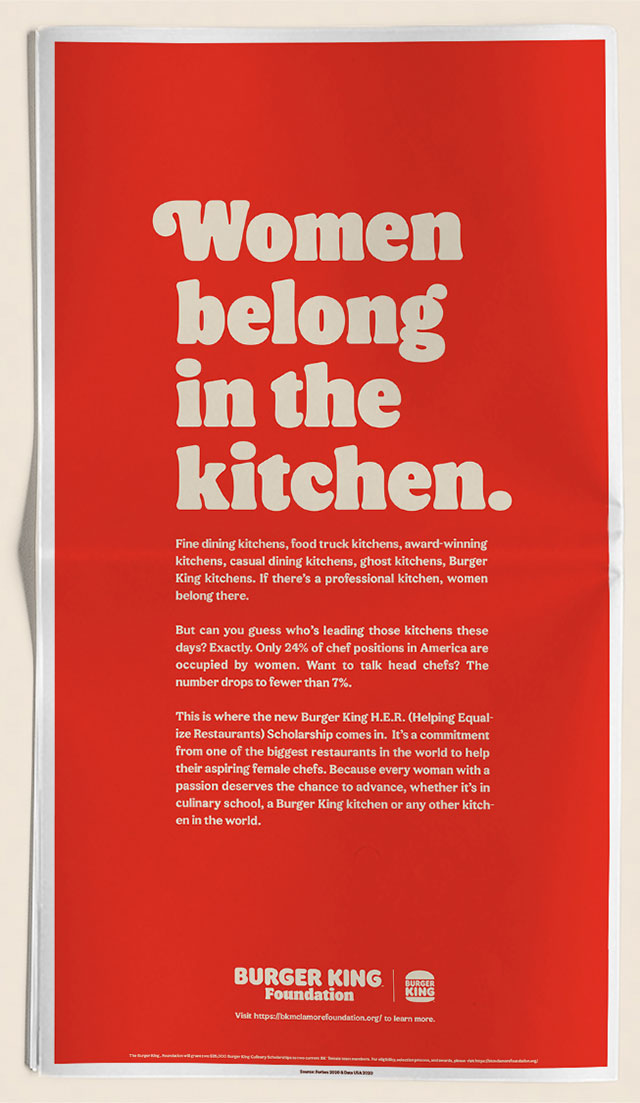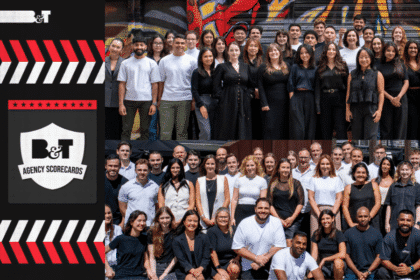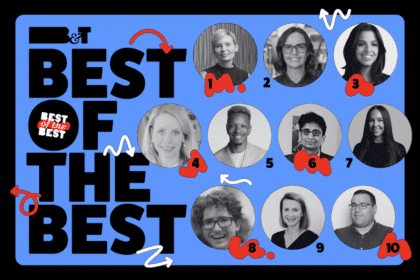Burger King has bowed to social media pressure and deleted a controversial campaign that led with the headline “women belong in the kitchen”.
As reported on B&T yesterday, the fast food giant launched a print campaign in The New York Times – to coincide with International Women’s Day – with the racy headline; however, on closer inspection the ad was actually a call for more women in the restaurant and cheffing industries, particularly in senior roles.
When the campaign was tweeted out, it initially only led with the headline before a follow-up tweet attempted to explain that the ad was actually promoting Burger King’s HER (Helping Equalise Restaurants) scholarship that aims to get more women into the hospitality industry.
One of the first to call out the tweet was Burger King’s arch rival KFC who tweeted in response: “The best time to delete this post was immediately after posting it. The second best time is now.”
Others suggested the brand – known for its offbeat marketing – was using the headline as clickbait to drive more traffic.
Following yesterday’s furore, Burger King responded: “Why would we delete a tweet that’s drawing attention to a huge lack of female representation in our industry? We thought you’d be on board with this, as well. We’ve launched a scholarship to help give more of our female employees the chance to pursue a culinary career.”
Burger King has since deleted the tweet.
Now its global CMO, Fernando Machado, has agreed the message got lost in translation and has since apologised.
“I think there are many lessons on this one,” Machado told Forbes.
“In the end we are indeed doing something positive, but the headline we used ended up offending people, especially when used without the context around it. Hopefully over time, thanks to the actions we are taking and will continue to take, people will see that our intention was positive.”
Machado was then questioned about Burger King’s own dearth of women in senior leadership roles, to which he replied: “By no means am I saying we are perfect when it comes to representation. But we are making good progress toward having teams that are more diverse.”










